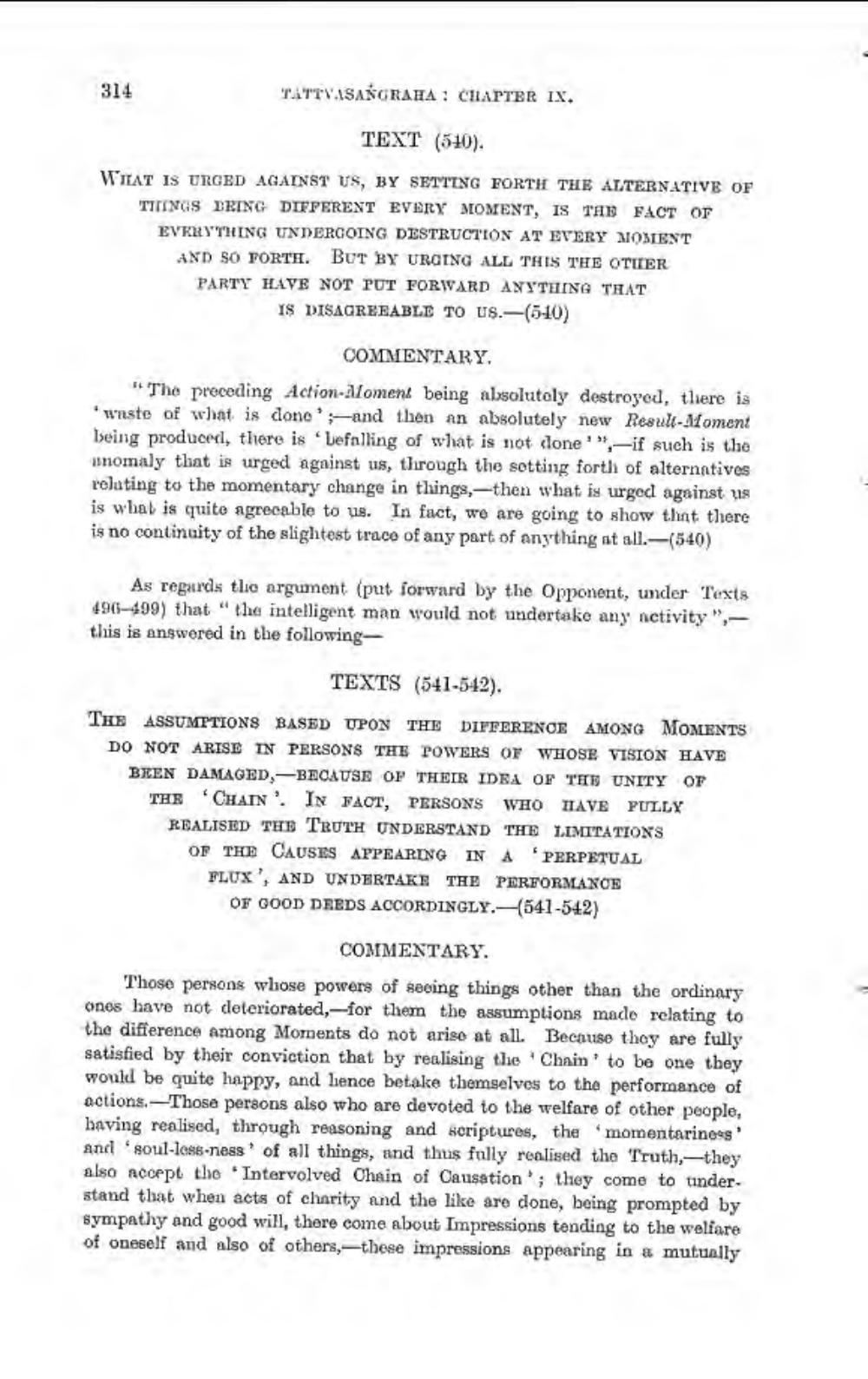________________
314
TATTY.SANGRAHA : CHAPTER IX.
TEXT (510).
WHAT IS URGED AGAINST US, BY SETTING FORTH THE ALTERNATIVE OF
TITINGS BEING DIFFERENT EVERY MOMENT, IS THE FACT OF EVERYTHING UNDERGOING DESTRUCTION AT EVERY MOBIENT AND SO FORTH. BUT BY URGING ALL THIS THE OTIIER PARTY HAVE NOT PUT FORWARD ANYTHING THAT
IS DISAGREEABLE TO U$.-(6-10)
COMMENTARY.
"The preceding Action-Moment being absolutely destroyed, there is *waste of what is done and then an absolutely new Result-Moment Being produced, there is 'Lefalling of what is not clone -if such is the unomaly that is urged against us, through the sotting forth of alternatives relating to the momentary change in things, then what is urged against us is whal is quite agrecable to us. In fact, we are going to show that there is no continuity of the slightest trace of any part of anything at all.-(540)
As regards the argument (put forward by the Opponent, under Texts 490-499) that "the intelligent man would not undertake any netivity",this is angwered in the following
TEXTS (541-542).
THE ASSUMPTIONS BASED UPON THE DIFFERENCE AMONG MOMENTS DO NOT ARISE IN PERSONS THE POWERS OF WHOSE VISION HAVE BEEN DAMAGED,-BECAUSE OF THEIR IDEA OF THE UNITY OF THE CHAIN'. IN FACT, PERSONS WHO HAVE FULLY REALISED THE TRUTH UNDERSTAND THE LIMITATIONS OF THE CAUSES APPEARING IN A PERPETUAL FLUX', AND UNDERTAKE THE PERFORMANCE
OF GOOD DREDS ACCORDINGLY.-(541-542)
COMMENTARY.
Those persons whose powers of seeing things other than the ordinary ones have not deteriorated,--for them the assumptions made relating to the difference among Moments do not arise at all. Because they are fully satisfied by their conviction that by realising the Chain to be one they would be quite happy, and lience betake themselves to the performance of actions. -Those persons also who are devoted to the welfare of other people, having realised, through reasoning and scriptures, the momentariness and 'soul-less-ness of all things, and thus fully realised the Truth,—they also accept the 'Intervolved Chain of Causation'; they come to tinder. stand that when acts of charity and the like are done, being prompted by sympathy and good will, there come about Impressions tending to the weliare of oneself and also of others-these impressions appearing in a mutually




